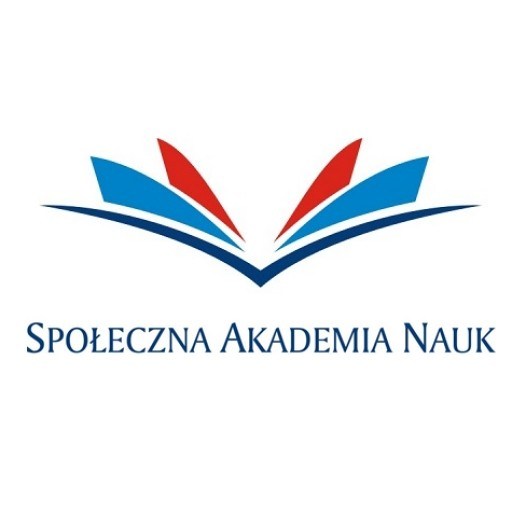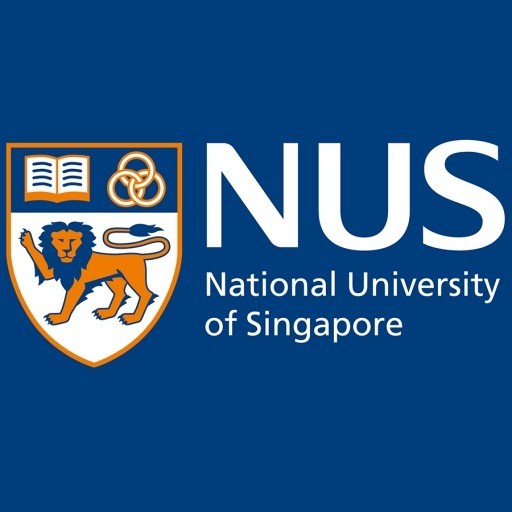Photos of university / #northwesternu
Joint Bachelor of Science in Industrial Engineering and Management Sciences at Northwestern University offers a comprehensive and rigorous curriculum designed to prepare students for leadership roles in the engineering and management sectors. This interdisciplinary program combines principles of engineering, management, data analysis, and technology to equip graduates with the skills necessary to optimize complex systems, improve operational efficiency, and drive innovation in various industries. Students will engage in coursework that emphasizes problem-solving, quantitative analysis, systems modeling, and strategic decision-making, all within a collaborative learning environment that fosters critical thinking and hands-on experience.
Throughout the program, students have the opportunity to participate in cutting-edge research projects, internships, and industry collaborations, gaining practical insights and real-world applications of their academic knowledge. The curriculum covers key areas such as operations research, supply chain management, data analytics, systems engineering, and human factors. Additionally, students are encouraged to develop strong communication and leadership skills to effectively manage multidisciplinary teams and projects. The curriculum is designed to be flexible, allowing students to tailor their educational experiences through elective courses and specialization tracks aligned with their career goals.
Graduates of this program are well-prepared for careers in consulting, manufacturing, technology, healthcare, logistics, and other sectors where business and engineering intersect. They will possess the technical proficiency, strategic perspective, and ethical awareness necessary to address today’s complex challenges and contribute to organizational success. The program's emphasis on innovation, critical thinking, and lifelong learning ensures that students are not only ready to enter the workforce but also equipped to adapt to future developments in industry and technology. With access to Northwestern’s extensive alumni network and industry partnerships, students gain valuable professional connections and mentorship opportunities that support their career advancement.
CORE CURRICULUM
PhD students spend about half of their first year of study taking a common core of six industrial engineering and management sciences courses that provide fundamental knowledge:
- IEMS 401 Intermediate Statistics
- IEMS 450-1 Mathematical Programming I
- IEMS 460-1 Stochastic Models I
- IEMS 480-1 Production and Logistics I
- IEMS 480-2 Production and Logistics II
- IEMS 435 Introduction to Stochastic Simulation
Additional first-year courses may be chosen from relevant graduate-level offerings throughout the university in areas such as:
- Mathematics
- Economics
- Engineering
- Management
- Social sciences
At the end of the first year, PhD students must take a candidacy exam that tests their ability to understand, apply, and integrate concepts from the basic core curriculum. Students who demonstrate satisfactory performance in 12 courses and the core exam are eligible to receive the master of science degree in industrial engineering and management sciences, if they do not already hold an MS degree in a similar discipline.
ADVANCED STUDY
Students whose performance in first-year courses and the candidacy exam demonstrates a strong potential for success in research are invited to continue to study for the PhD degree. The program has three additional required courses, which can be taken in either the first or second year:
- IEMS PhD Elective (not IEMS 499 or 590)
- IEMS 450-2 Mathematical Programming II
- IEMS 460-2 Stochastic Models I
MAJORS AND MINORS
PhD students also complete one four-course major and two two-course minors. Majors and minors may be chosen from the following areas:
- Stochastic Modeling and Analysis
- Optimization
- Financial Engineering
- Production and Logistics
- Healthcare Engineering
- Decision and Risk Analysis
- Applied Statistics and Quality Engineering
- Organization Theory and Systems Analysis
CANDIDACY EXAM (CORE EXAM)
All PhD students who wish to continue beyond the first year for the PhD must take a candidacy exam that tests their ability to understand, apply, and integrate material from their first year of study. The candidacy exam is offered in June each year.
A student must take the exam no later than his or her first opportunity after completing the six required first-year PhD core courses. (For most students, this would mean June of their first year. However, transfer or part-time students have the option of delaying the exam until they complete these six core courses.)
FORMAT
The candidacy exam is a one-hour oral exam that is administered to individual students by committees of at least three industrial engineering and management sciences faculty members. The exam is based on the student's review and presentation of one of a selection of papers that is provided by industrial engineering and management sciences faculty.
A student is also required to submit to his or her committee a short, written report on the paper prior to the oral examination. Guidelines for the oral presentation and the written report are communicated in advance. The phrase "IEMS faculty member" means any faculty member with at least a 20% appointment in industrial engineering and management sciences.
TIME
The Candidacy Exams take place following final exam week during the week of commencement. The times and dates are subject to change, but dates will be announced at least one month before they are scheduled to occur.
EVALUATION
Following the student's exam, committee members each confidentially submit a grade evaluation to the IEMS Graduate Committee. This grade evaluation is incorporated into the Graduate Committee's evaluation of all first-year students for the purpose of deciding continuation toward the PhD and the awarding of the MS degree. This evaluation is based on exam performance, overall course performance, faculty evaluation of research ability, and other criteria.
There are three decisions that can be made during this evaluation:
- No pass, no MS. In this case the student did not successfully pass the exam and will not be eligible to receive the MS degree.
- MS conferral, no continuation. In this case the student passed the exam and will receive their MS (upon successful completion of 12 courses), but they will not be asked to continue on the PhD track.
- MS conferral, invitation to continue. In this case the student passed the exam and will receive their MS (upon successful completion of 12 courses), and they are asked to continue in the program.
DISSERTATION
A student's dissertation committee is chaired or co-chaired by the student's adviser. Two or more additional committee members are chosen by the adviser in consultation with the student. At least two committee members, including the chair or a co-chair, must be full or joint industrial engineering and management sciences faculty members. The committee must include at least one member who has primary affiliation outside of the department.
To earn a PhD, students must also pass the prospectus examination and dissertation defense at which they present their research.
The degree is awarded following an oral final examination and submission of the completed dissertation. The entire PhD program is usually completed in four or five years.
TEACHING REQUIREMENT
Teaching is an essential element of the education and training experience of PhD students at Northwestern. The Graduate School requires that all PhD students serve in some instructional capacity for at least one academic quarter during their graduate education at Northwestern.
Requirements
- GRE-Quantitative score above 160 under the new scoring system or 760 under the old scoring system.
- GRE-Analytical Writing score of 4.0 (41st percentile) or higher is desirable. A score of 3.0 (10th percentile) is poor. This test plays a role in admissions because students in the program need to write research papers and dissertations.
- Although the major field test in mathematics offered by ETS is not required, a good score on this test will be viewed very favorably.
- If applicable, a score of at least 90 on the internet-based TOEFL, 600 on the paper-based TOEFL, or 7.0 on the IELTS. This is a minimum requirement and no exceptions will be made.
- Many successful applicants did not have substantial research experience, but most of them were able to demonstrate their potential for research with letters of recommendation.
- The Department of Industrial Engineering and Management Sciences prefers letters of recommendation that attest to the applicant's potential to grow into an independent researcher and suitability for mathematically challenging PhD coursework.
- The Department of Industrial Engineering and Management Sciences prefers a statement of purpose that demonstrates that the applicant has goals that can be met by completing our PhD program.
Admissions into the PhD program requires applicants to have a good academic record from a top-tier college or graduate program. It is difficult to give precise guidance about what this means because the grading schemes, curricula, and selectivity of different colleges vary greatly.
We concentrate on the following characteristics:
- Grades in mathematics, industrial engineering, and computer science are most important.
- At a top-tier institution, a grade point average of at least 3.7 out of 4.0 or 90 out of 100 is desirable.
- Most of our students were in the top 2% - 10% of their classes at top-tier institutions.
Scholarships
Financial aid offers may vary. A typical financial aid offer provides tuition and stipend for four years. Financial aid is contingent on satisfactory progress in the program. A typical offer takes the form of a fellowship in the first year and research and teaching assistantships in subsequent years.
- Research assistants work with faculty members on specific projects, often related to their PhD dissertations.
- Teaching assistants help in undergraduate instruction.
- Some fellowships support a period of PhD study without the obligation to serve as an assistant.
Our department has established $7,000 in awards for exceptional PhD students in two research areas:
- The Benjamin K. Sachs Graduate Fellowship, in the area of statistics for enterprise engineering.
- The Harold Richards Graduate Fellowship, in the area of organizational theory and systems analysis.
All applicants to the PhD program who indicate one of these two research areas as their intended specialization in the online application system will be considered for the corresponding award; there is no separate application. The awards consist of:
- A one-time $5,000 supplement to the student's stipend, to be received after matriculation.
- A $2,000 research account, granted after the first year of study, conditional on passing the industrial engineering and management sciences candidacy exam on a paper in the specified research area.
The Master of Science in Industrial Engineering and Management Sciences at Northwestern University offers a comprehensive curriculum designed to prepare students for leadership roles in manufacturing, service industries, healthcare, and technology sectors. The program emphasizes the development of analytical, technical, and managerial skills necessary to optimize complex systems and processes. Students benefit from a multidisciplinary approach, integrating principles from engineering, business, and management to address real-world challenges.
The curriculum typically includes core courses in operations research, systems analysis, quality control, production planning, and supply chain management. Advanced electives allow students to tailor their education according to their career interests, such as data analytics, finance, or healthcare systems. The program also prioritizes experiential learning, encouraging participation in research projects, internships, and industry collaborations, which provide practical experience and networking opportunities.
Students in the program have access to state-of-the-art laboratories and research centers affiliated with Northwestern University, enabling cutting-edge research and innovation. The program aims to develop skills in modeling, optimization, data analysis, and decision-making, preparing graduates for roles such as operations managers, supply chain analysts, quality assurance directors, and consulting professionals.
The program’s faculty comprises leading experts in industrial engineering, operations management, and analytics, who are actively involved in research addressing current industrial challenges. Graduates are well-equipped to analyze complex systems, implement efficient processes, and lead technological innovations, ultimately enhancing productivity and competitiveness in various industries.
Additionally, Northwestern University's location in Evanston, Illinois, offers students proximity to a vibrant business community and numerous corporate partners, facilitating internships and employment opportunities. The program fosters an environment of collaboration and innovation, encouraging students to develop both technical proficiency and leadership skills essential for career advancement in industrial engineering and management sciences.









